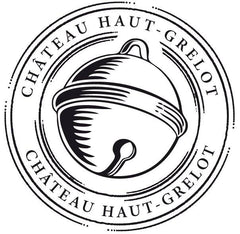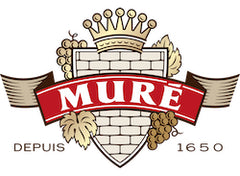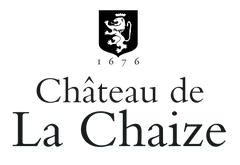France is one of the largest wine producers in the world, and arguably, one of the most significant, with a wine-making history that dates back to the Roman times. Taste through the different wine regions of France, from Bordeaux, Burgundy, Champagne, to Languedoc-Roussillon, Loire Valley, Rhône, Provence and beyond. Each region is known for different grape varieties, a unique growing environment, and their special wine production philosophy.
38 products
- White Wine
- Sauvignon Blanc, Sémillon
- Vegan-Friendly
- Dry
- Light Bodied
- 750ml
- 12.50% alc./vol
About the Winery
Château Haut-Grelot

Château Haut Grelot is located in Saint Ciers Sur Gironde, approximately 50 kms north of Bordeaux, on the right bank of the Gironde Estuary. It was established by the Bonneau family in 1922 and now run but the 4th Generation. Today Château Haut-Grelot comprises 58 hectares of vineyards and is run by Céline and Julien, who was recently awarded the title 'Best Young Talent' in Bordeaux.
The vineyards are made up of sandy-gravel on the hillsides bordering the Gironde Estuary and sand-clay-silt on the hillsides further inland. Blaye Côtes de Bordeaux benefits from an ideal microclimate where there is a high level of sunshine and enough rain to guarantee the perfect environment for grape production. As a result the reds are fruity and concentrated and the whites are fresh, vibrant and delicate.
- White Wine
- Sauvignon Blanc
- Sustainable, Vegan-Friendly
- Dry
- Light Bodied
- 750ml
- 13.5% alc./vol
About the Winery
Domaine de Mauperthuis

A family estate created by Marie-Noëlle & Laurent Ternynck, Domaine de Mauperthuis is located in Prehy, near the town of Chablis. Their wines express the terroir of this amazing region and the vineyards are currently undergoing the transition to organic. Domaine de Mauperthuis covers around twenty hectares of vineyards around Chablis. The estate, in the Burgundy appellation, is planted in Chardonnay, Pinot Noir, Sauvignon and César, on land facing south, benefiting from exceptional sunshine.
Press Reviews
Wine Align
91 points - David Lawrason
Saint Bris is a rare sauvignon blanc appellation in northern Burgundy, pres de Chablis, which is not all that far as the crow flies from Sancerre. And I definitely get that tight, firm if less mineral character here. Expect generous aromas and flavours of juniper, grapefruit, pine needle and gooseberry/guava. It is medium weight, firm and dry, with some bitterness. The length is excellent. Always fun to present it this blind to sauvignon blanc fans. Tasted January 2024
Value Rating: 5 Stars
90 points - John Szabo, MS
This is an uncommonly ripe and fruity sauvignon blanc from Saint Bris in Burgundy, round and creamy, quite full bodied despite just 12.5% alcohol declared, with ripe orchard and pineapple fruit leading. Acids are creamy yet still fresh, and length and depth are very good. And while I'd love a little more complexity at the price, or at least would have expected, the current international yardstick of inexorably increasing prices secures this wine a spot in a favourable quality/cost zone. At peak now I'd say to capture the fruit. Tasted January 2024.
90 points - Megha Jandhyala
Saint Bris is an appellation in Bourgogne that, unusually, is centred around sauvignon blanc. This is a lovely example, showing poise and grace but also inviting and expressive flavours of peaches, apricots, grapefruit, and a hint of passion fruit. The palate is medium bodied and fleshy, with juicy acids. The length is very good, with a refreshing citrusy finish. I would drink this over the next year or two. Tasted January 2024.
- Red Wine
- Gamay
- Biodynamic, Sustainable, Vegan-Friendly
- Dry
- Light Bodied
- 750ml
- 13% alc./vol
About the Winery
Stéphane Aviron

Stéphane Aviron can be considered a pioneer in his approach to winemaking in Beaujolais, however he would just tell you that he’s simply returning to the traditional practices that have always made fantastic Gamay wines. Sustainable viticulture, extremely old vines and classic Burgundian techniques. He focuses on the Beaujolais village crus, all but forgotten gems of vineyards when the nouveau craze took over, which are the best sites for unique, expressive and terroir driven wines. All of the fruit is sourced from old vines (40+ years), so seeing Vieilles Vignes on the label is a rite of passage, not a privilege. Authenticity and a distinctly Beaujolais style of winemaking is what sets Stéphane apart from the rest.
Press Reviews
Wine Align
90 points - David Lawrason
This is a delicious, fairly juicy and charming young gamay. There is a hint of meatiness on the nose but all kinds of candied strawberry/cherry as well, and violet-like florals. It is light to medium bodied, open knit, slightly sour-edged with very generous fruit on the palate. The tannins are notably mild, the alcohol provides some power and the length is very good to excellent. Tasted June 2022
- White Wine
- Melon de Bourgogne
- Dry
- Light Bodied
- 750ml
- 11.9% alc./vol
Press Reviews
WineAlign
90 points - Sara d'Amato
A Muscadet made with care and reverence, refreshing with a delicate leesy influence contributing toastiness and amplitude. Features more complexity than the norm with flavours of pear, anise, clay and chalk. Saly, energetic and undeniably engaging! Great value. Tasted February 2023.
90 points - Michael Godel
A deliciously leesy and liquid chalky melon de bourgogne that is simply what the doctor orders for those of modest means when they need a quenching after sucking back a briny oyster. This is like liquifying the shell as a chaser and with some mouthfeel to boot. Salty and just refined enough to do the bivalve molluscs pulled from marine or brackish habitats proud. Drink 2023-2025. Tasted February 2023.
90 points - Megha Jandhyala
This golden muscadet was made with fruit from vines that are more than 40 years old, planted on slopes facing south and south-east. It is relatively aromatic, perfumed with notes of honeysuckle, grapefruits, and toasted bread. The palate feels fleshy and rounded but also fresh and vibrant, and delicately salty. The finish is long-lasting, leaving flavours of citrus zest and a fine texture in its wake. I would pair this muscadet with subtly flavoured seafood, like mussels or oysters. Tasted February 2023 by Critic Understudy Megha Jandhyala.
- White Wine
- Piquepoul Blanc
- Sustainable
- Dry
- Light Bodied
- 750ml
- 13.5% alc./vol
- White Wine
- Sylvaner
- Biodynamic, Organic, Vegan-Friendly
- Dry
- Light Bodied
- 750ml
- 12.5% alc./vol
About the Winery
Domaine Muré

The Muré family has been winegrowers in the region of Rouffach since 1650. In 1935, Alfred Muré, René’s grandfather, bought 32 acres of family-monopole vineyard name Clos St. Landelin, an area that has been described as the best of Alsace Grand Cru since the 7th Century.
Today, René Muré, the 11th generation of the family, along with his children, Véronique and Thomas, are responsible for running their exceptional Grand Cru vineyard and neighbouring terroirs using biodynamic methods. Until this day, they persist in hand-picking every single grape, and focus on crafting wines that preserve the family’s credo. The resulting wines are some of Alsace's finest – powerful, elegant, and age-worthy.
Press Reviews
Wine Align
90 points - Michael Godel
If 2017 was found to exist in the ripe and rich realm for Alsatian sylvaner then wait to you get a taste of what 2018 brings to the varietal table. Also crunchy and finely embittered with a sense of lemons having spent time soaking up neutral spirits. Not your old uncle Sylvain’s sylvaner, no sir, this one’s set up to host the new millennials. An alternative varietal take that will rock the avocado off your toast. Drink 2020-2024. Tasted October 2020.
90 points - David Lawrason
This is a ripe version of sylvaner from a warmer year, with peach fruit, some waxy/oiliness and light caraway and spice. It is medium-full bodied, nicely rich yet firm and dry, with some sense of spritz. There is some pithy bitterness on the finish. The length is very good to excellent. Tasted October 2020
90 points - John Szabo, MS
Clearly ripe, full of fleshy white-fleshed apple fruit and spiced apple chutney, with a vaguely sweet taste, concentrated and generous to be sure. I like the density of flavour and evident intensity, while acids remain firm but ripe and length and depth are excellent. A superior example to be sure, more generous than the mean. Ready to enjoy or hold short term. Tasted October 2020.
90 points - Sara d'Amato
There is a notable elegance to this fresh but fulfilling sylvaner a characteristic tendency of this French/Germanic grape variety. Apple and pear with more apparent sweetness than the previous vintage due to level of ripeness. Highly drinkable, very well defined and a real classic. Tasted October 2020.
- Sparkling Wine
- Sémillon
- Biodynamic, Natural, Organic, Vegan-Friendly
- Dry
- Light Bodied
- 750ml
- 9% alc./vol
About the Winery
Château Barouillet

Chateau Barouillet has been a family business going back at least 8 generations. Vincent Alexis works alongside his father and grandfather to cultivate the land and has moved the winery into organic viticulture, starting to convert the soil in 2010 and fully converting all the vineyards by 2014. In 2020, the obtained their biodynamic certification.
The domaine controls 45 hectares of vines throughout Monbazzillac, Bergerac Pécharmant, and Cotes de Bergerac. Vincent continues to push the biological approach further by working according to the lunar calendar in the vineyards and in the cellar.
- Red Wine
- Gamay
- Organic
- Dry
- Light Bodied
- 750ml
- 13% alc./vol
About the Winery
Domaine du Château de La Chaize

Château de La Chaize is among the oldest, most historic estates in Burgundy’s Beaujolais region. Cared for by the same family for nearly three and a half centuries, the estate has been passed on to new owners, the Gruy family, who are equally committed to managing the estate with the utmost care, while implementing an ambitious environmental plan. Among the many initiatives is the conversion of all vineyards to organic farming, the adoption of precision viticulture, reducing carbon their carbon footprint, and recycling every by-product from viti- and vinicultural activity, to achieve zero waste.
Founded in 1670 by the seneschal of Lyon François de la Chaize d’Aix, the main Château de la Chaize building and gardens were completed by Jules-Hardouin Mansart and André le Nôtre, respectively architect and gardener of the Château de Versailles. Château de la Chaize is among the oldest, most historic estates in Burgundy’s Beaujolais region. Boasting over 250 acres of vineyards, it is also one of the largest. It is today considered one of the most innovative estates in Burgundy. Among its forward- thinking practices is the adoption of eco-friendly farming techniques, commonly referred to as Agriculture Raisonnée. Chemical treatments have been reduced to a strict minimum, for example, and the growing of grass between rows has been re-introduced to enrich the soil and reduce erosion.
Press Reviews
Robert Parker
90 points
The 2019 Brouilly opens in the glass with notes of cherries, peonies, orange rind and warm spices. Medium to full-bodied, ample and lively, with powdery tannins, attractive purity of fruit and a precise finish, it continues this cuvée's upward trajectory. – W.K. Tasted in August, 2021.
Wine Align
90 points - Sara d'Amato
A charming Brouilly sourced from 11 differed cadastral lieux-dits (vineyards) including "La Chaize" which is a monopole of the aptly named Château de La Chaize. Generously aromatic and still vibrant with delicate notes of black pepper, fresh raspberry, cran-cherry and licorice. Featherweight tannins and well-balanced acidity make for a ready-to-drink find. Excellent length. Tasted June 2022.
James Suckling
90 points
The effusive violet and blackcurrant-pastille aromas draw you into this elegant and silky, mid-weight Brouilly with excellent harmony right through the long finish… this will keep, but why wait when it tastes so good already? Drink now. – Tasted in April, 2021.
- White Wine
- Melon de Bourgogne
- Dry
- Residual Sugar: 3.00 g/l
- Light Bodied
- 750ml
- 12.00% alc./vol





























